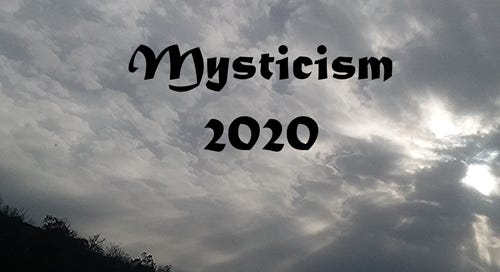Kierkegaard: A Christian mystic?
Søren Kierkegaard, often hailed as the father of existentialism, presents a theology deeply rooted in personal faith, individual subjectivity, and the leap of faith. His emphasis on the individual's relationship with God, particularly through concepts like "the knight of faith" in "Fear and Trembling," resonates with themes found in Christian mysticism. Christian mysticism, which spans various traditions but is commonly associated with figures like Meister Eckhart and St. Teresa of Ávila, focuses on the immediate, personal experience of God. Both Kierkegaard and Christian mystics advocate for a direct, unmediated encounter with the divine, bypassing formalities of institutional religion. This shared pursuit of a personal, intense spiritual experience highlights a significant point of connection where Kierkegaard's notion of subjective truth aligns with mystics' experiences of divine union or communion.
Kierkegaard's concept of the "teleological suspension of the ethical," where Abraham's willingness to sacrifice Isaac is justified by his faith in a higher divine command, mirrors the mystical tradition's occasional transcendence of conventional morality for a higher spiritual truth or union. In Christian mysticism, this can be seen in the radical acts of love or ascetic practices undertaken by mystics to achieve spiritual enlightenment or to express an overwhelming love for God, which often defies societal norms. This aspect of Kierkegaard's thought, where ethical norms are momentarily suspended for a higher religious purpose, parallels the mystic's journey where one might abandon societal roles to pursue a deeper spiritual reality.
Moreover, Kierkegaard's view of despair as a fundamental human condition that can only be alleviated by a leap into faith parallels the mystical path where one must confront the void or the 'dark night of the soul' to reach spiritual illumination. For Kierkegaard, despair is not just psychological but existential, requiring faith as its antidote. Similarly, in Christian mysticism, the dark night is an essential phase of purification where the soul is stripped of all that is not God, leading to a profound spiritual awakening. Both traditions suggest that true knowledge of God comes not through rational inquiry but through existential and experiential means.
Kierkegaard's critique of Christendom, where he laments the reduction of Christianity to mere cultural or social conformity, also finds echoes in the mystic's critique of organized religion. Mystics often faced opposition from the church for their direct experiences of God which did not always conform to ecclesiastical structures or doctrines. Kierkegaard's call for a Christianity of personal commitment and inward passion rather than outward conformity can be seen as an echo of the mystic's disdain for a faith that lacks personal engagement with the divine. This critique underscores a shared concern for the authenticity of faith over its institutionalization.
Lastly, the existential urgency in Kierkegaard's writings, where he insists on the moment of decision as crucial for one's relationship with God, can be likened to the mystic's emphasis on the present moment as the point of divine encounter. For both, the now is where God is most vividly experienced. Kierkegaard's "moment" where truth becomes subjective and personal, correlates with the mystic's "now" where God is directly known. This temporal focus on the immediacy of divine encounter forms another bridge between Kierkegaard's existential theology and the lived experience of Christian mysticism, where the eternal breaks into the temporal through the individual's lived faith.
One barrier to reading Kierkegaard is that he is very wordy, and his work covers a wide range of topics -- not just theology. So, it takes a lot of "wading through" to get at Kierkegaard. George Pattison has done us all a favor by editing and publishing Kierkegaard: Spiritual Writings: A New Translation and Selection which is quite accessible and a moderately easy read (for Kierkegaard!).
Note that I might earn a (very) small commission if you buy this book through the above link.



